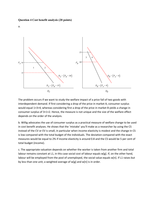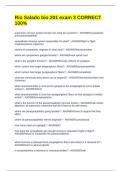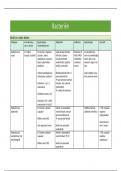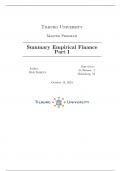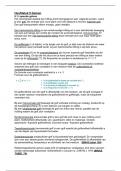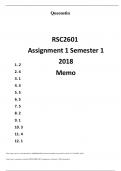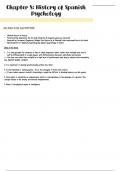Inhoudsopgave
1 Introduc*on ................................................................................................................ 3
1.1 The importance of poli2cal rhetoric ................................................................................ 3
What is Rhetoric?........................................................................................................................................... 3
Poli2cal Rhetoric ............................................................................................................................................ 3
Mar2n Luther King: most famous speech in history ................................................................................. 3
Eloquence = welsprekendheid .................................................................................................................. 3
Rhetoric a contested no2on .......................................................................................................................... 4
Rhetoric was central to ancient democracy................................................................................................... 4
1. Plato ................................................................................................................................................ 4
2. Aristotle ........................................................................................................................................... 5
3. Cicero............................................................................................................................................... 5
Rhetoric diminished when modern state emerged ....................................................................................... 6
1. Hobbes ............................................................................................................................................ 6
2. Rousseau ......................................................................................................................................... 6
1.2 Poli2cs vs the poli2cal ..................................................................................................... 7
1.3 Situa2ng rhetoric ............................................................................................................ 7
2 Classical rhetoric: discovery & arrangement ................................................................ 8
2.1 Ancient rhetorical classifica2ons and techniques: ........................................................... 8
Occasions of speech....................................................................................................................................... 8
The issue: ....................................................................................................................................................... 8
Five “canons of speech” ................................................................................................................................. 9
1) Discovery of the arrangement ......................................................................................................... 9
2) Arrangement of the argument ...................................................................................................... 11
3) Style ............................................................................................................................................... 13
4) Delivery.......................................................................................................................................... 16
Rhetorical poli2cal analysis (RPA) ........................................................................................................... 16
Ancient rhetoric: conclusion ........................................................................................................................ 17
3 Mass media rhetoric ................................................................................................. 18
3.1 The media2za2on of poli2cs ......................................................................................... 18
The media’s ambiguous role ........................................................................................................................ 18
What is news? ......................................................................................................................................... 19
Why do poli2cians adapt? ........................................................................................................................... 19
3.2 The rhetoric of poli2cians ............................................................................................. 19
3.3 The rhetoric of mass media ........................................................................................... 20
1) Media and cultural studies ................................................................................................................. 20
2) Television news as rhetorical genre.................................................................................................... 21
3) Episodic vs thema2c framing ............................................................................................................. 21
3.4 Media: curse or blessing for poli2cal rhetoric? .............................................................. 22
4 Emo*ons & reasons .................................................................................................. 23
4.1 Emo2ons in rhetoric: antagonis2c to reason?................................................................ 23
Delibera2ve democracy ............................................................................................................................... 23
Neuroscience ............................................................................................................................................... 24
4.2 Mo2vated reasoning ..................................................................................................... 26
4.3 Emo2onal rhetoric: curse or blessing? ........................................................................... 27
,5 Populist rhetoric........................................................................................................ 28
5.1 What is populism? ........................................................................................................ 28
Populism is an ideology ............................................................................................................................... 28
Diversity of populism ................................................................................................................................... 29
“The people” as a rhetorical construct ........................................................................................................ 29
Populism as a communica2on style ............................................................................................................. 29
5.2 Style elements of populist rhetoric................................................................................ 29
Patrio2sm/invoking the heartland ............................................................................................................... 30
Crisis rhetoric ............................................................................................................................................... 30
Absolu2sm ................................................................................................................................................... 30
Colloquial language...................................................................................................................................... 30
Emo2onaliza2on/nega2vism ....................................................................................................................... 30
In2miza2on .................................................................................................................................................. 30
The use of populist style elements .............................................................................................................. 31
5.3 Populist rhetoric, simplis2c rhetoric? ............................................................................ 32
6 Gender & rhetoric ..................................................................................................... 33
6.1 Gender inequality in poli2cal rhetoric ........................................................................... 33
History of gendered speech ......................................................................................................................... 33
More poli2cians are female.. but no equality yet ........................................................................................ 33
Poli2cs is not gender-neutral ....................................................................................................................... 33
Difficul2es for female poli2cians ................................................................................................................. 34
Remarkable case of Jacinda Ardern ............................................................................................................. 34
6.2 Feminism and rhetoric .................................................................................................. 34
6.3 Gender roles as a means to persuade ............................................................................ 36
7 Guest lecture I: nega*vity and incivility in poli*cal communica*on ........................... 37
7.1 How do we define these forms of nega2vity?................................................................ 37
Is all nega2vity the same?............................................................................................................................ 37
Incivility as breakage of social norms of communica2on ............................................................................ 37
Why are poli2cians nega2ve and uncivil? .................................................................................................... 37
Are all poli2cians equally nega2ve and uncivil? .......................................................................................... 37
Is nega2ve or uncivil poli2cal communica2on on the rise? ......................................................................... 38
7.2 Key points ..................................................................................................................... 38
, Political Rhetoric
1 Introduc+on
1.1 The importance of poli2cal rhetoric
- No poli(cs without persuasion:
o Poli(cal par(es are trying to persuade voters, but also each other
§ Implement certain policy plan àfull of actors trying to persuade each other
o We are also trying to persuade poli(cians: protest for climate change
- Reason: uncertainty so there need to be guidelines, legisla(ons, rules, …
o = if everything would be clear, what our policy goals are and what the best means
are to reach these goals, then we don’t need poli(cs
Different types of persuasion:
- By force (put someone in prison)
- By speech: somehow more powerful form of persuasion (ex. in totalitarian regimes as
China/ Russia)
What is Rhetoric?
Ø Greek ‘rhetoriketekhne’
o Rhetor = speaker
o Tekhne = art
ð The art of speaking
- Studying rhetoric = learning the prac(cal skills of persuasion => studying persuasiveness
of speech
- Not limited to spoken words: also wriRen words, visuals
Poli0cal Rhetoric
- Many areas of rhetorical studies: law, organiza(on studies, …
- Persuasion in the poli(cal realm
o (=overtuiging in het poli2ek rijk)
- Not limited to poli(cians but also ac(vists
o Ex: Emma Watson – speech about gender equality
- What makes a poli(cal speech persuasive (or not?)
Mar$n Luther King: most famous speech in history
- Ac(vist leader of civil rights movement (1963)
- March on Washington for jobs and freedom
- Elements that makes the speech persuasive:
o Credibility as a person: who he is, displaying eloquence, exper(se, reason
Eloquence = welsprekendheid
o Arousal of emo(ons
o Use of rhetoric devices: repe((ons, allusions, rhyme, metaphors
o Convincing arguments
o How he speaks: loud, clearly, intona(on, rhythm, rich vocabulary
, Rhetoric a contested no0on
(Een omstreden begrip)
- Words oaen associated with rhetoric: “mere”; “empty”
o Rhetoric is contrasted with reality:
ð Poli(cians don’t keep their promises
ð Ex: ar(cle big tech’s pro-climate rhetoric is not matched by policy ac(on, companies
have a rhetoric in which they pretend to be concerned about the climate, but what
they actually do is not in line with these thoughts
- Associa(on with danger:
o Can people be persuaded of anything? (violence, misinforma(on)
ð Ex: the aRack on the capital and the role of Trumps rhetoric
ð Misinforma(on, fake news
- At the same (me: no democracy without free speech, without rhetoric
Rhetoric was central to ancient democracy
- Greece 500 before Christus: from an aristocracy to democracy à In the democracy also
farmers could now enter the debate
o Demos = people (the rule of the people)
o Ekklesia = the assembly where all ci(zens gathered to discuss issues of public interest
- Rhetoric was very important for everyone: highly par(cipa(on system
o Status of being ci(zen comes with status but also with obliga(ons
o Quote: “Here each individual is interested not only in his own affairs but in the affairs
of the state as well: even those who are mostly occupied with their own business are
extremely well-informed on general poli=cs – this is a peculiarity of ours: we do not
say that a man who takes no interest in poli=cs is a man who minds his own business;
we say that he has no business here at all.” – Pericles
- Rhetorical skills were important to ordinary ci(zens àThere were special teachers to
teach ci(zens to use rhetorical techniques: Sophists
o Sophos = wisdom
- Culture of oral transmission
o Different views of classical thinkers
1. Plato
- Rhetoric is empty and dangerous
o It can de bad instead of good: the death of his mentor Socrates)
o It can persuade most people of anything; a “rudderless boat”; “sophistries”
ð Rudderless boat: it has no clear direc(on, it can convince everyone of anything
ð Contempt to death: he spoke to youth and educate them àthe people thought he
was a danger to society (they didn’t trust them)à he had to drink some poison
ð Plato was very touched by this, so he became very skep(cal of public rhetoric (that
they could decide on such a bad thing as killing)
- Beliefs of on moral truth and people are not able to see this
o Allegory of the cave
ð We (the people) only see the shadows of the real things that are outside the cave.
Only those who are very smart and wise can go out the cave and can see the real
nature of things and can see what the truth is
o Only a small elite can see it
1 Introduc*on ................................................................................................................ 3
1.1 The importance of poli2cal rhetoric ................................................................................ 3
What is Rhetoric?........................................................................................................................................... 3
Poli2cal Rhetoric ............................................................................................................................................ 3
Mar2n Luther King: most famous speech in history ................................................................................. 3
Eloquence = welsprekendheid .................................................................................................................. 3
Rhetoric a contested no2on .......................................................................................................................... 4
Rhetoric was central to ancient democracy................................................................................................... 4
1. Plato ................................................................................................................................................ 4
2. Aristotle ........................................................................................................................................... 5
3. Cicero............................................................................................................................................... 5
Rhetoric diminished when modern state emerged ....................................................................................... 6
1. Hobbes ............................................................................................................................................ 6
2. Rousseau ......................................................................................................................................... 6
1.2 Poli2cs vs the poli2cal ..................................................................................................... 7
1.3 Situa2ng rhetoric ............................................................................................................ 7
2 Classical rhetoric: discovery & arrangement ................................................................ 8
2.1 Ancient rhetorical classifica2ons and techniques: ........................................................... 8
Occasions of speech....................................................................................................................................... 8
The issue: ....................................................................................................................................................... 8
Five “canons of speech” ................................................................................................................................. 9
1) Discovery of the arrangement ......................................................................................................... 9
2) Arrangement of the argument ...................................................................................................... 11
3) Style ............................................................................................................................................... 13
4) Delivery.......................................................................................................................................... 16
Rhetorical poli2cal analysis (RPA) ........................................................................................................... 16
Ancient rhetoric: conclusion ........................................................................................................................ 17
3 Mass media rhetoric ................................................................................................. 18
3.1 The media2za2on of poli2cs ......................................................................................... 18
The media’s ambiguous role ........................................................................................................................ 18
What is news? ......................................................................................................................................... 19
Why do poli2cians adapt? ........................................................................................................................... 19
3.2 The rhetoric of poli2cians ............................................................................................. 19
3.3 The rhetoric of mass media ........................................................................................... 20
1) Media and cultural studies ................................................................................................................. 20
2) Television news as rhetorical genre.................................................................................................... 21
3) Episodic vs thema2c framing ............................................................................................................. 21
3.4 Media: curse or blessing for poli2cal rhetoric? .............................................................. 22
4 Emo*ons & reasons .................................................................................................. 23
4.1 Emo2ons in rhetoric: antagonis2c to reason?................................................................ 23
Delibera2ve democracy ............................................................................................................................... 23
Neuroscience ............................................................................................................................................... 24
4.2 Mo2vated reasoning ..................................................................................................... 26
4.3 Emo2onal rhetoric: curse or blessing? ........................................................................... 27
,5 Populist rhetoric........................................................................................................ 28
5.1 What is populism? ........................................................................................................ 28
Populism is an ideology ............................................................................................................................... 28
Diversity of populism ................................................................................................................................... 29
“The people” as a rhetorical construct ........................................................................................................ 29
Populism as a communica2on style ............................................................................................................. 29
5.2 Style elements of populist rhetoric................................................................................ 29
Patrio2sm/invoking the heartland ............................................................................................................... 30
Crisis rhetoric ............................................................................................................................................... 30
Absolu2sm ................................................................................................................................................... 30
Colloquial language...................................................................................................................................... 30
Emo2onaliza2on/nega2vism ....................................................................................................................... 30
In2miza2on .................................................................................................................................................. 30
The use of populist style elements .............................................................................................................. 31
5.3 Populist rhetoric, simplis2c rhetoric? ............................................................................ 32
6 Gender & rhetoric ..................................................................................................... 33
6.1 Gender inequality in poli2cal rhetoric ........................................................................... 33
History of gendered speech ......................................................................................................................... 33
More poli2cians are female.. but no equality yet ........................................................................................ 33
Poli2cs is not gender-neutral ....................................................................................................................... 33
Difficul2es for female poli2cians ................................................................................................................. 34
Remarkable case of Jacinda Ardern ............................................................................................................. 34
6.2 Feminism and rhetoric .................................................................................................. 34
6.3 Gender roles as a means to persuade ............................................................................ 36
7 Guest lecture I: nega*vity and incivility in poli*cal communica*on ........................... 37
7.1 How do we define these forms of nega2vity?................................................................ 37
Is all nega2vity the same?............................................................................................................................ 37
Incivility as breakage of social norms of communica2on ............................................................................ 37
Why are poli2cians nega2ve and uncivil? .................................................................................................... 37
Are all poli2cians equally nega2ve and uncivil? .......................................................................................... 37
Is nega2ve or uncivil poli2cal communica2on on the rise? ......................................................................... 38
7.2 Key points ..................................................................................................................... 38
, Political Rhetoric
1 Introduc+on
1.1 The importance of poli2cal rhetoric
- No poli(cs without persuasion:
o Poli(cal par(es are trying to persuade voters, but also each other
§ Implement certain policy plan àfull of actors trying to persuade each other
o We are also trying to persuade poli(cians: protest for climate change
- Reason: uncertainty so there need to be guidelines, legisla(ons, rules, …
o = if everything would be clear, what our policy goals are and what the best means
are to reach these goals, then we don’t need poli(cs
Different types of persuasion:
- By force (put someone in prison)
- By speech: somehow more powerful form of persuasion (ex. in totalitarian regimes as
China/ Russia)
What is Rhetoric?
Ø Greek ‘rhetoriketekhne’
o Rhetor = speaker
o Tekhne = art
ð The art of speaking
- Studying rhetoric = learning the prac(cal skills of persuasion => studying persuasiveness
of speech
- Not limited to spoken words: also wriRen words, visuals
Poli0cal Rhetoric
- Many areas of rhetorical studies: law, organiza(on studies, …
- Persuasion in the poli(cal realm
o (=overtuiging in het poli2ek rijk)
- Not limited to poli(cians but also ac(vists
o Ex: Emma Watson – speech about gender equality
- What makes a poli(cal speech persuasive (or not?)
Mar$n Luther King: most famous speech in history
- Ac(vist leader of civil rights movement (1963)
- March on Washington for jobs and freedom
- Elements that makes the speech persuasive:
o Credibility as a person: who he is, displaying eloquence, exper(se, reason
Eloquence = welsprekendheid
o Arousal of emo(ons
o Use of rhetoric devices: repe((ons, allusions, rhyme, metaphors
o Convincing arguments
o How he speaks: loud, clearly, intona(on, rhythm, rich vocabulary
, Rhetoric a contested no0on
(Een omstreden begrip)
- Words oaen associated with rhetoric: “mere”; “empty”
o Rhetoric is contrasted with reality:
ð Poli(cians don’t keep their promises
ð Ex: ar(cle big tech’s pro-climate rhetoric is not matched by policy ac(on, companies
have a rhetoric in which they pretend to be concerned about the climate, but what
they actually do is not in line with these thoughts
- Associa(on with danger:
o Can people be persuaded of anything? (violence, misinforma(on)
ð Ex: the aRack on the capital and the role of Trumps rhetoric
ð Misinforma(on, fake news
- At the same (me: no democracy without free speech, without rhetoric
Rhetoric was central to ancient democracy
- Greece 500 before Christus: from an aristocracy to democracy à In the democracy also
farmers could now enter the debate
o Demos = people (the rule of the people)
o Ekklesia = the assembly where all ci(zens gathered to discuss issues of public interest
- Rhetoric was very important for everyone: highly par(cipa(on system
o Status of being ci(zen comes with status but also with obliga(ons
o Quote: “Here each individual is interested not only in his own affairs but in the affairs
of the state as well: even those who are mostly occupied with their own business are
extremely well-informed on general poli=cs – this is a peculiarity of ours: we do not
say that a man who takes no interest in poli=cs is a man who minds his own business;
we say that he has no business here at all.” – Pericles
- Rhetorical skills were important to ordinary ci(zens àThere were special teachers to
teach ci(zens to use rhetorical techniques: Sophists
o Sophos = wisdom
- Culture of oral transmission
o Different views of classical thinkers
1. Plato
- Rhetoric is empty and dangerous
o It can de bad instead of good: the death of his mentor Socrates)
o It can persuade most people of anything; a “rudderless boat”; “sophistries”
ð Rudderless boat: it has no clear direc(on, it can convince everyone of anything
ð Contempt to death: he spoke to youth and educate them àthe people thought he
was a danger to society (they didn’t trust them)à he had to drink some poison
ð Plato was very touched by this, so he became very skep(cal of public rhetoric (that
they could decide on such a bad thing as killing)
- Beliefs of on moral truth and people are not able to see this
o Allegory of the cave
ð We (the people) only see the shadows of the real things that are outside the cave.
Only those who are very smart and wise can go out the cave and can see the real
nature of things and can see what the truth is
o Only a small elite can see it

